1/7/2020 - Washington, D.C. (Brian Bates) - Last Monday appellant counsel for convicted former Oklahoma City police officer Daniel Holtzclaw filed a petition for review to the United States Supreme Court (SCOTUS). The petition asks SCOTUS to grant a ‘Writ of Certiorari.’ In layman’s terms; to review the Oklahoma Court of Criminal Appeals August 2019 affirmation (denial) of Daniel Holtzclaw’s direct appeal of his Dec. 2015 conviction and 263 year sentence.
In the petition, Holtzclaw’s attorney, James L. Hankins of Edmond, outlined two legal concerns to be addressed by SCOTUS.
The first, “What is the standard of materiality applicable in assessing the prejudicial impact of potential exculpatory evidence relating to the State’s chief forensic expert which was obtained in a secret ex parte hearing at which defense counsel were excluded entirely, and thereafter precluded from sharing the results of which with the defense DNA expert?”
In layman’s terms: After Holtzclaw’s trial and conviction, a two-day secret hearing was held regarding “personnel matters.” More specifically, testimony provided in Holtzclaw’s trial by the prosecution’s lab analyst Elaine Taylor - who suddenly retired almost immediately following Holtzclaw’s trial.
According to Taylor’s lab notes and trial testimony, the DNA found on the fly of Holtzclaw’s pants was a mixture of male and female DNA. The female DNA was identified as belonging to accuser Adaira Gardner. Taylor indicated in her notes that Holtzclaw had been excluded as the contributor of the male DNA.
Taylor further testified that she has no way of knowing how Gardner’s DNA got onto Holtzclaw’s pants, that she found no signs of sexual contact, and that the DNA could possibly be the result of innocent transfer or touch DNA from when Holtzclaw frisked Gardner or went through her personal belongings.
In closing arguments, assistant district attorney Gayland Geiger told the jury that it was a “fact” that Gardner’s DNA came from her vaginal walls and was transferred to Holtzclaw’s pants during sexual intercourse. An assertion not supported by the prosecution’s own expert.
It was later learned, and not disclosed at trial, that Taylor is the mother-in-law to the co-lead detective who was key in investigating Holtzclaw, Detective Rocky Gregory.
Also not disclosed at trial was the fact that Taylor is also the mother of one of the first Oklahoma City police officer’s to interview lynchpin accuser Jannie Ligons, Brian Taylor.
The second legal question, “Is there a constitutional limit on joinder of complaining witnesses and counts?”
Layman’s terms: Joinder is a legal term for when otherwise individual/unrelated criminal counts are ‘joined’ or filed and prosecuted under a single case number and trial.
The prosecution argues that joinder is appropriate because Holtzclaw was a serial offender and that the crimes are similar in nature and occurred under the same common scheme or motive and within the same general area and timeframe.
The defense argued in it’s petition that, “…the State was allowed to present evidence from thirteen complaining witnesses en masse concerning disparate acts of sexual assault, creating a self-corroborating cascade of testimony which reinforced its own credibility through volume. This dynamic would have been absent had the State been forced to try the allegations of each complaining witness separately, as evidenced by the fact that the jury acquitted Holtzclaw of exactly half the counts"…”
In August of 2019 the Oklahoma Court of Criminal Appeals (OCCA) unanimously denied Holtzclaw’s direct appeal.
According to the US Supreme Court’s online docket, the petition for Writ of Certiorari was filed on Dec. 30, 2019 and a response is due by Feb. 5, 2020.
Below is the actual petition for Writ of Certiorari…
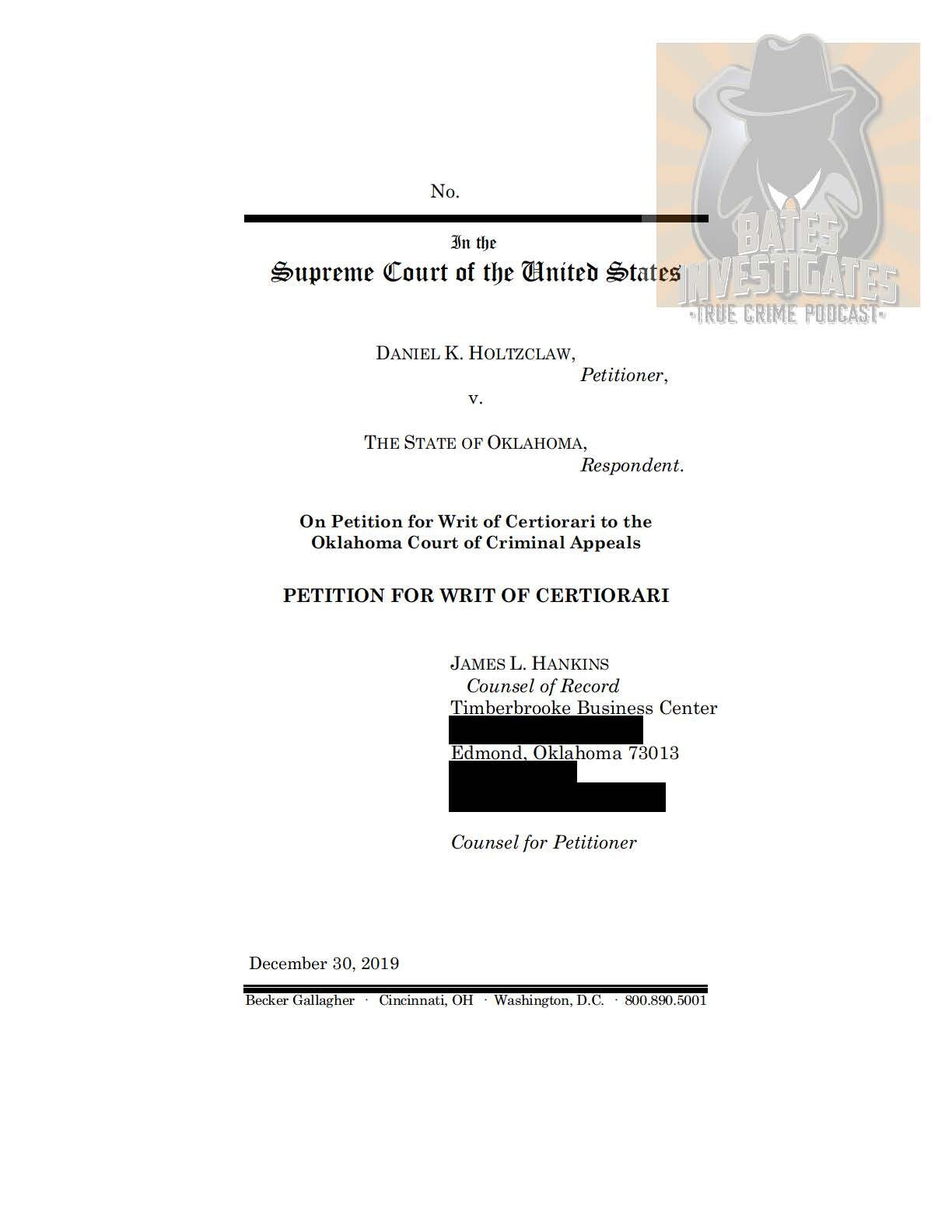
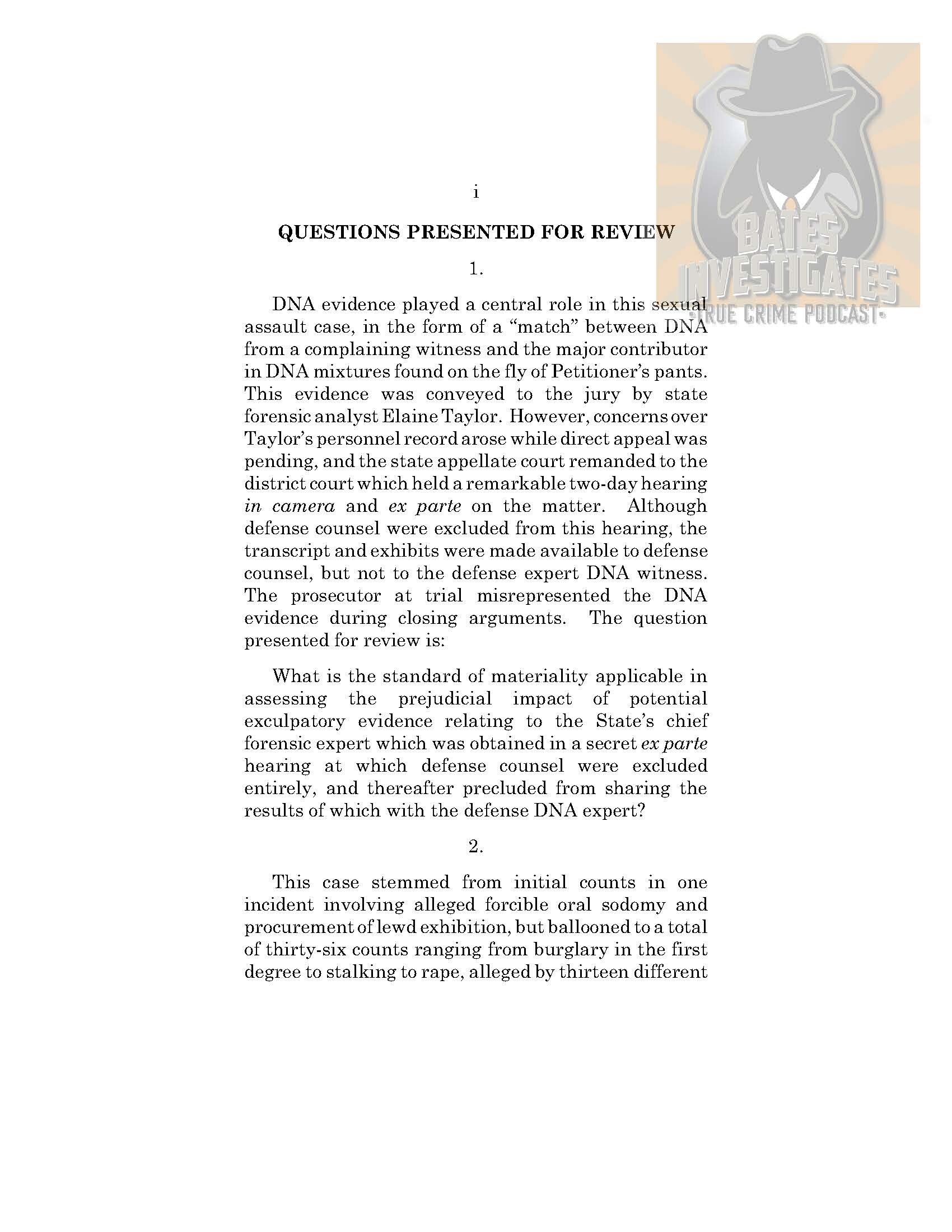


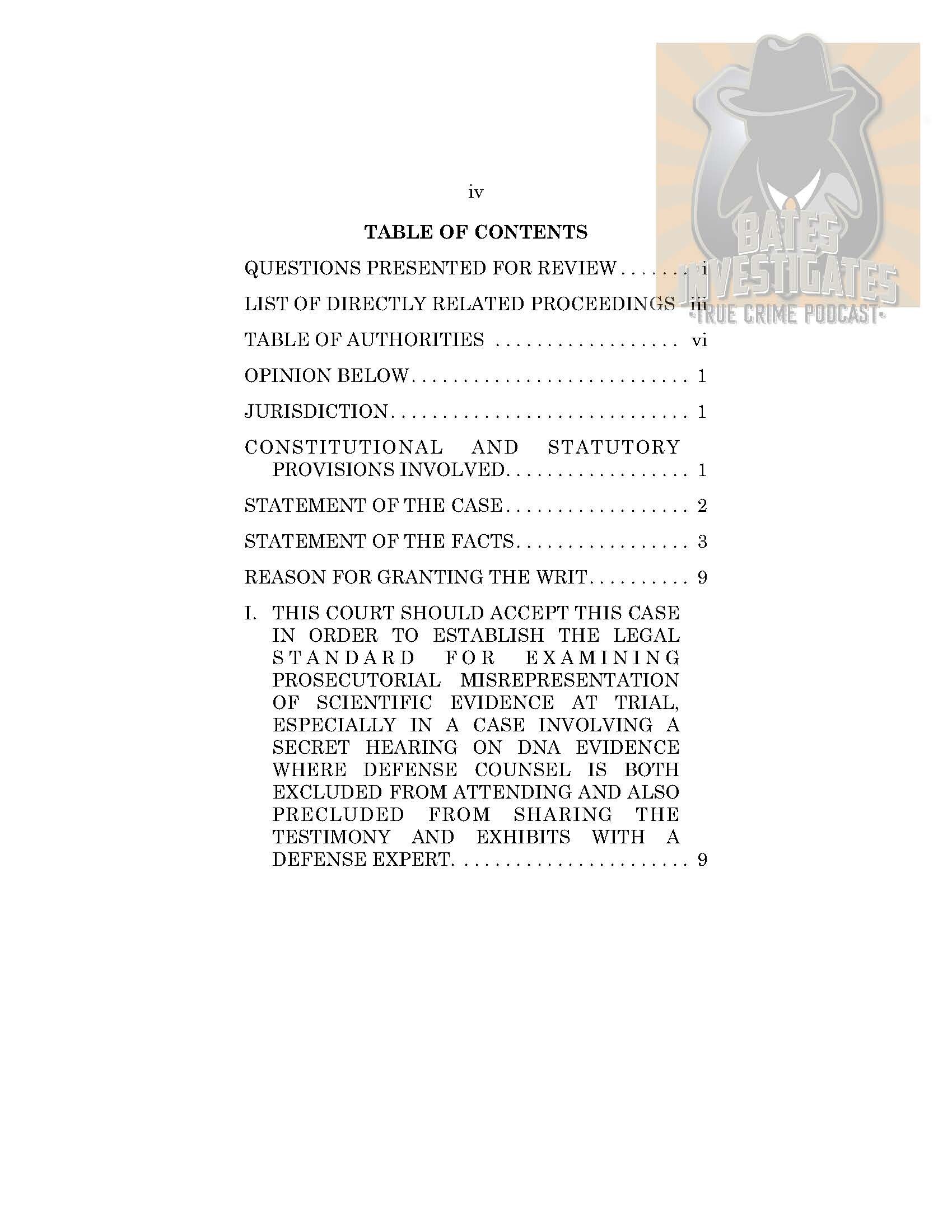
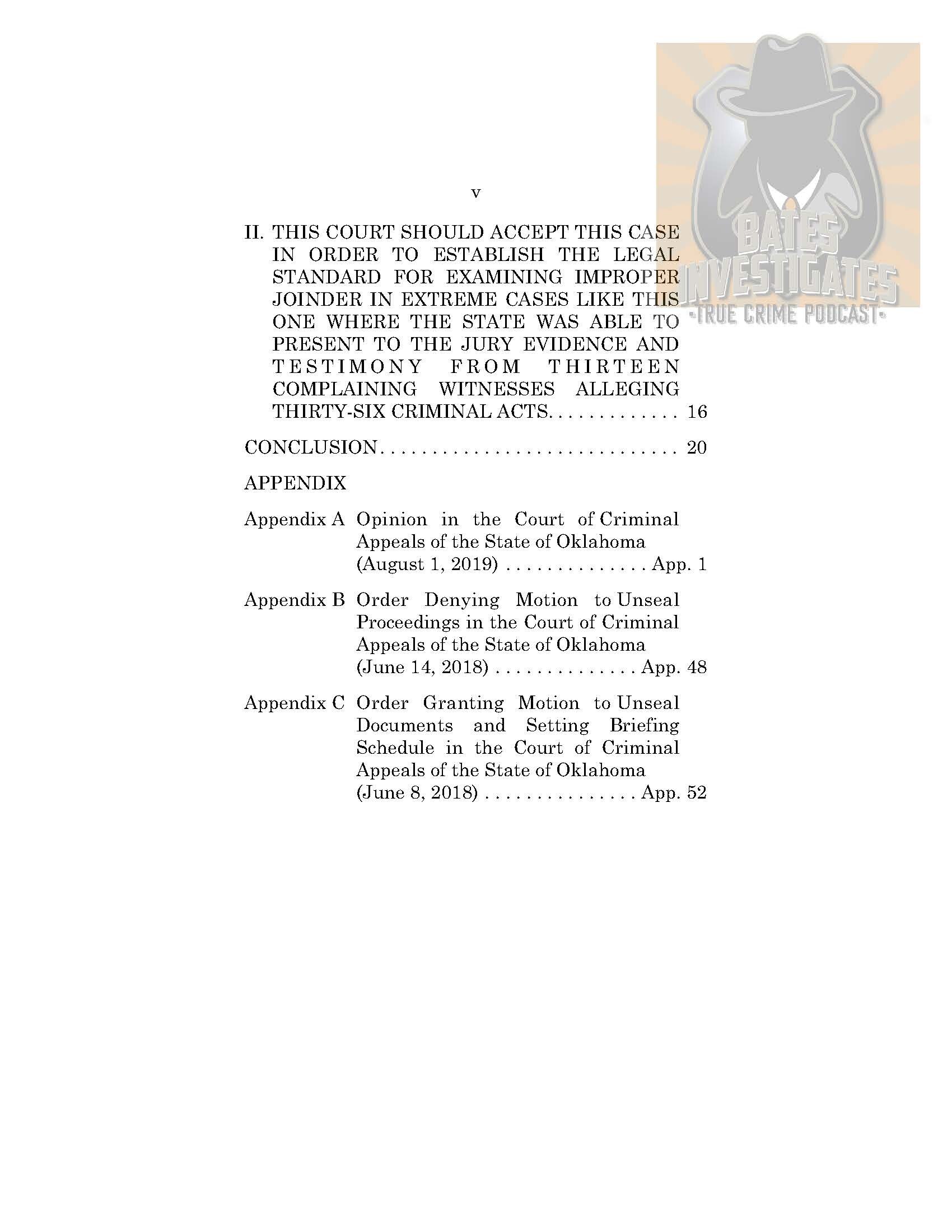
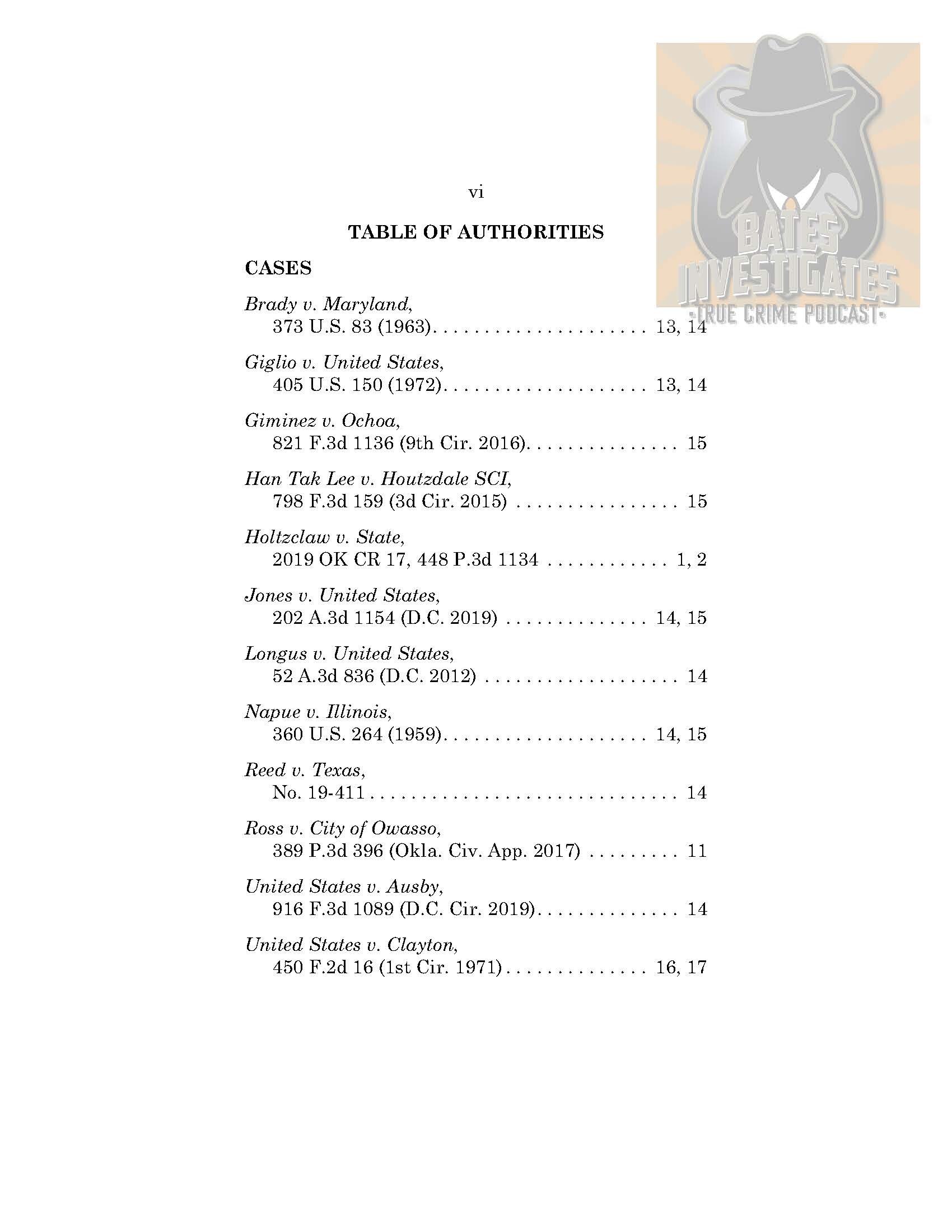
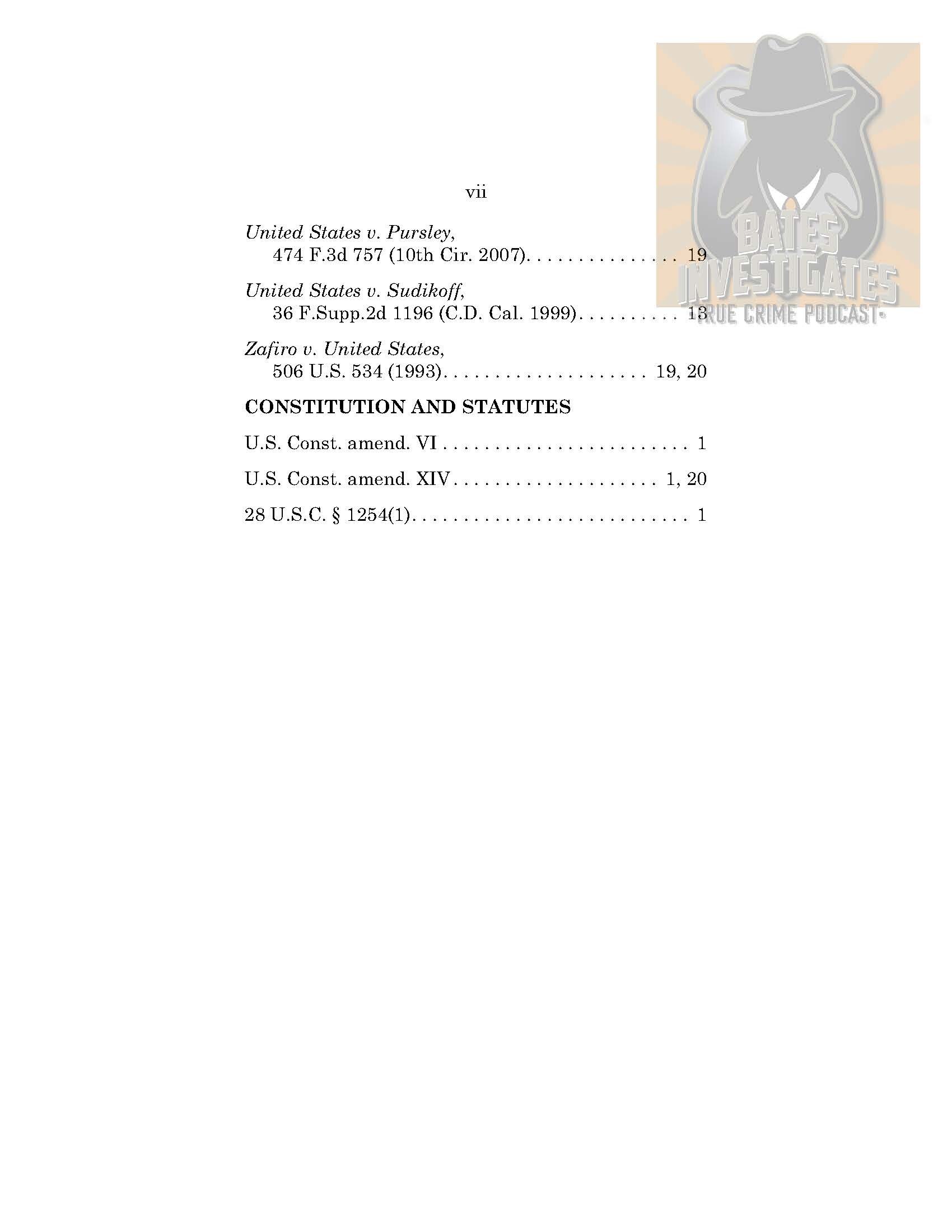
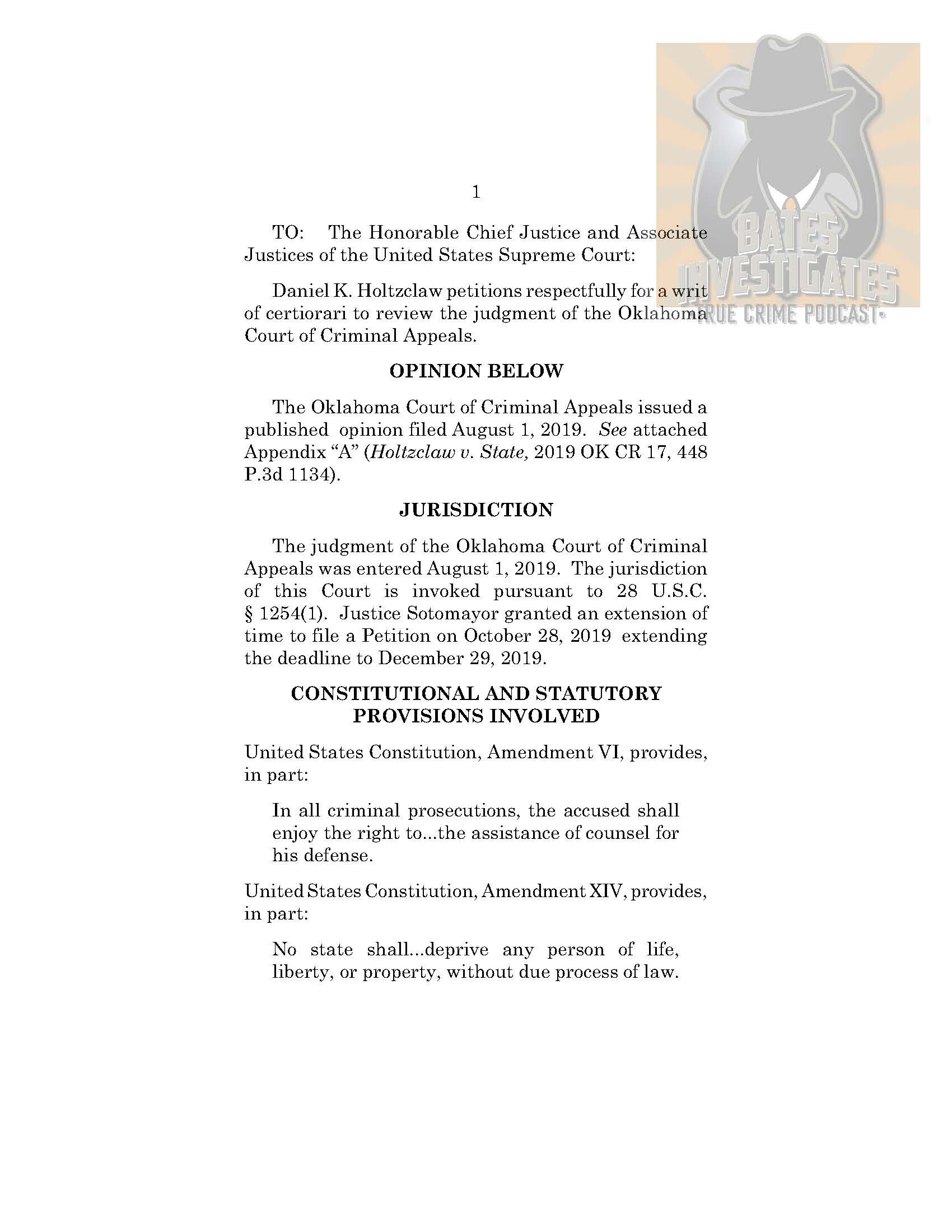
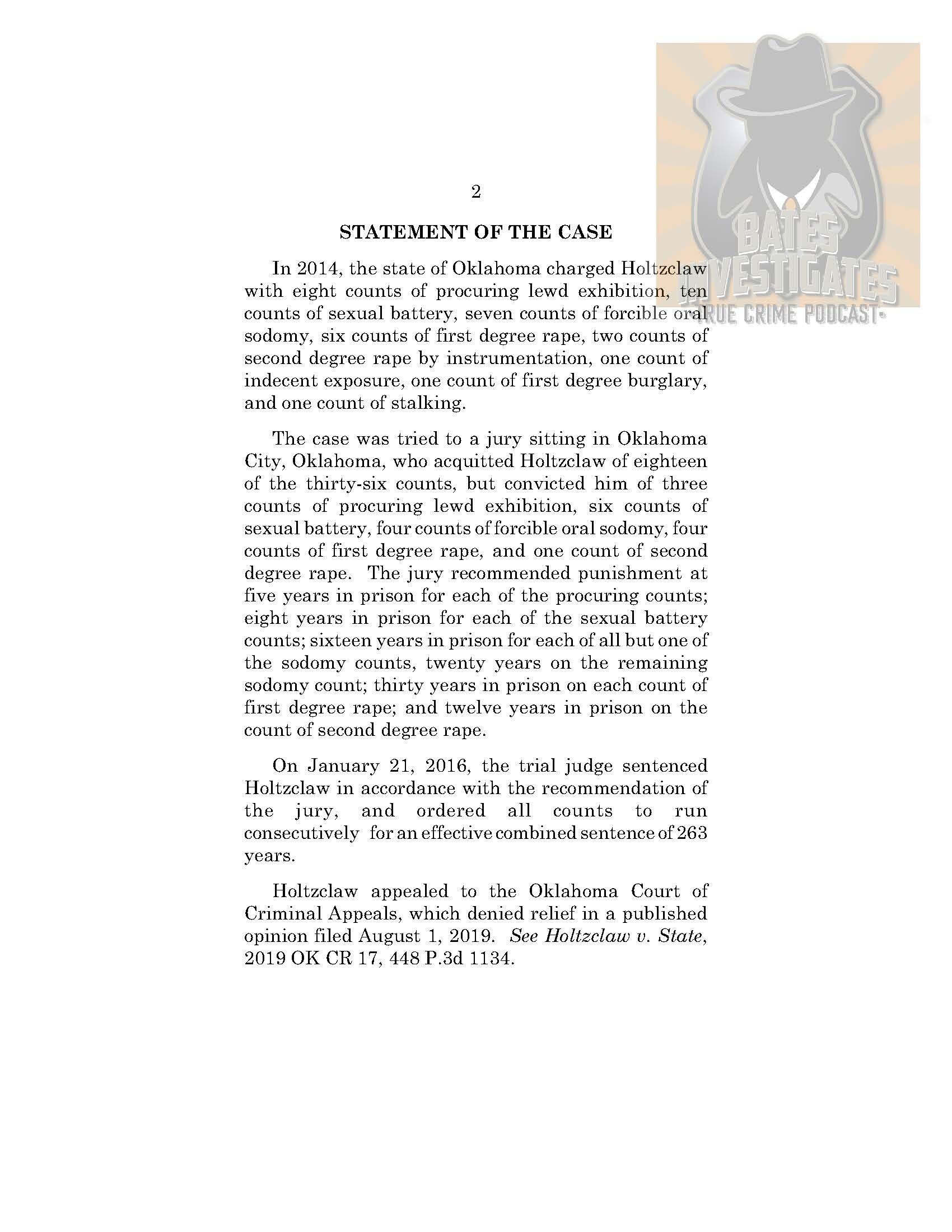
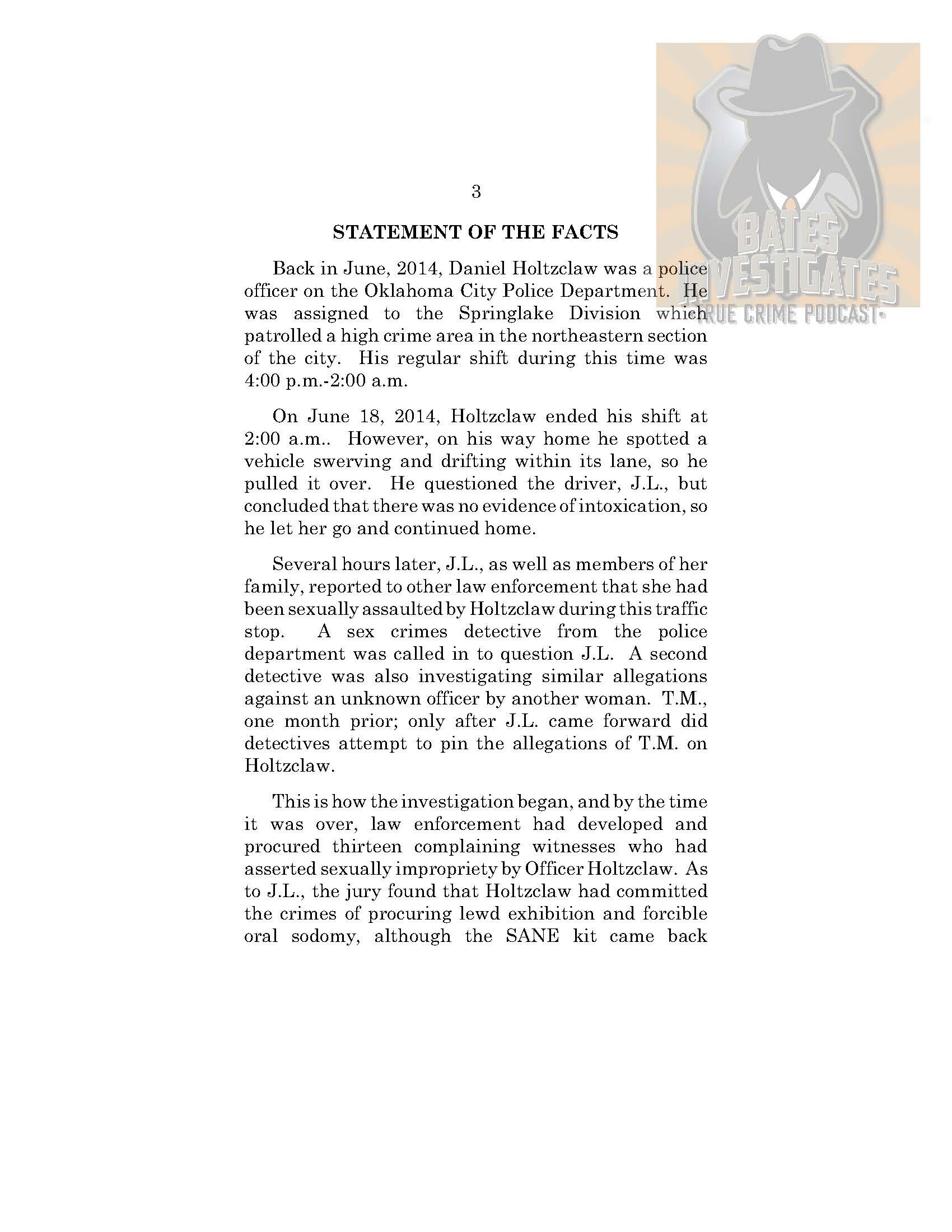
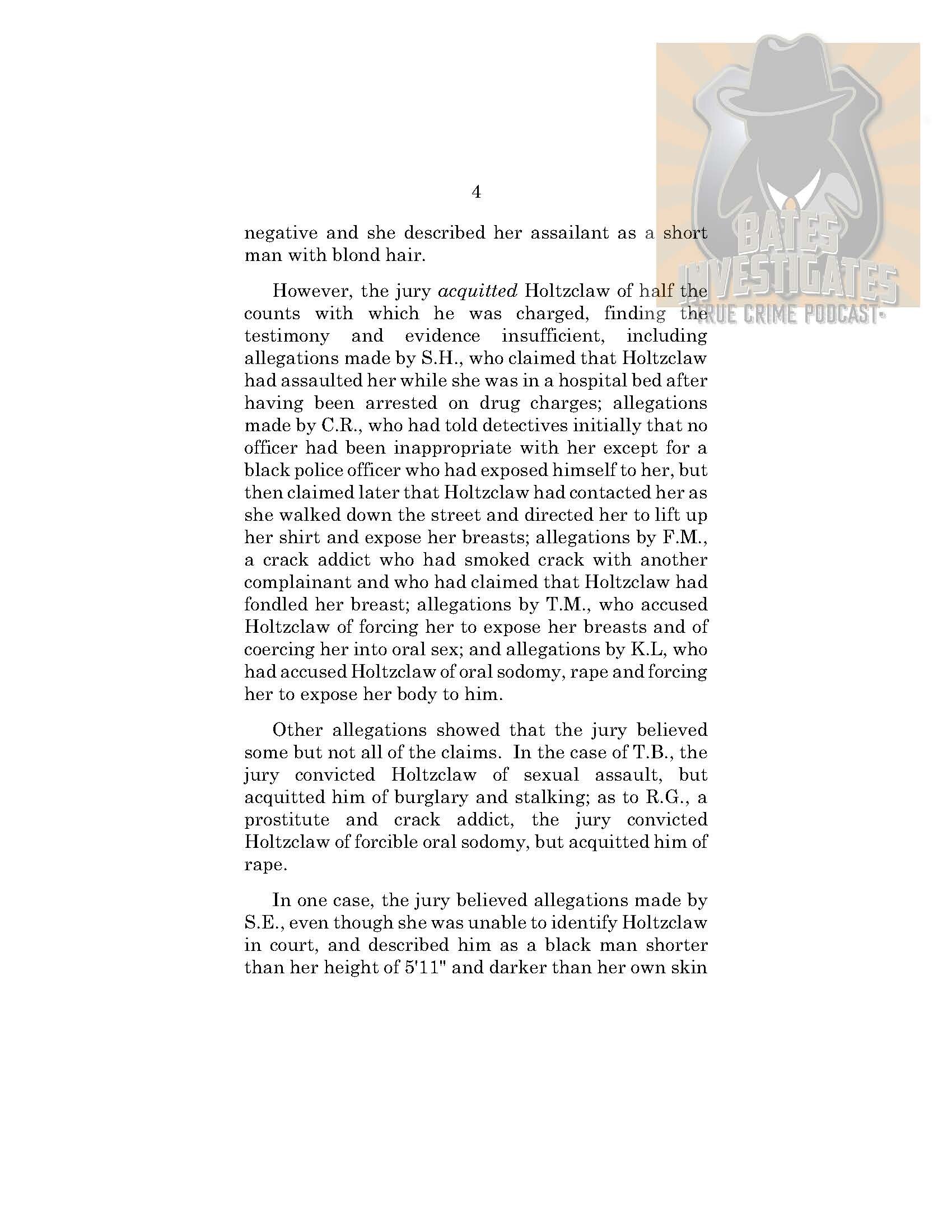
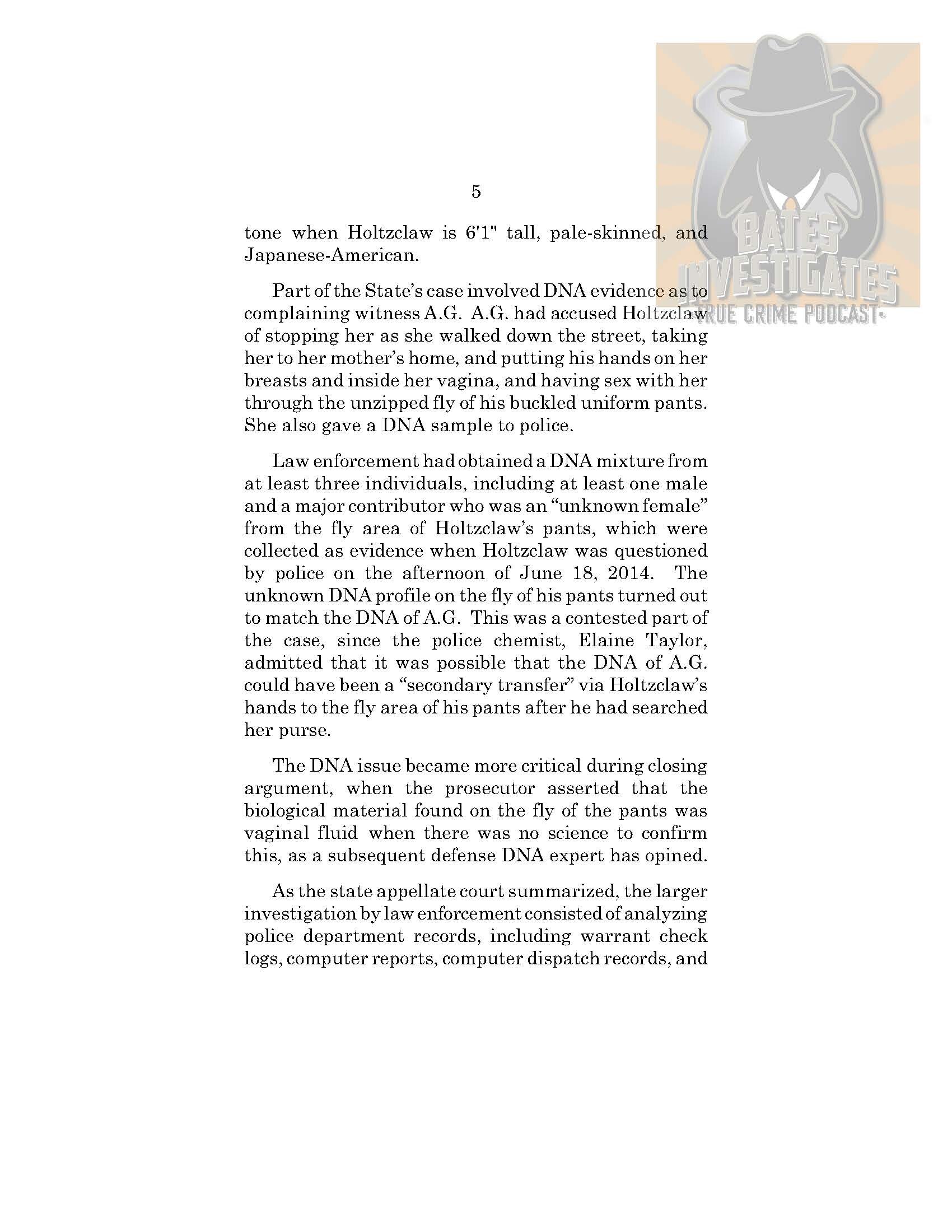
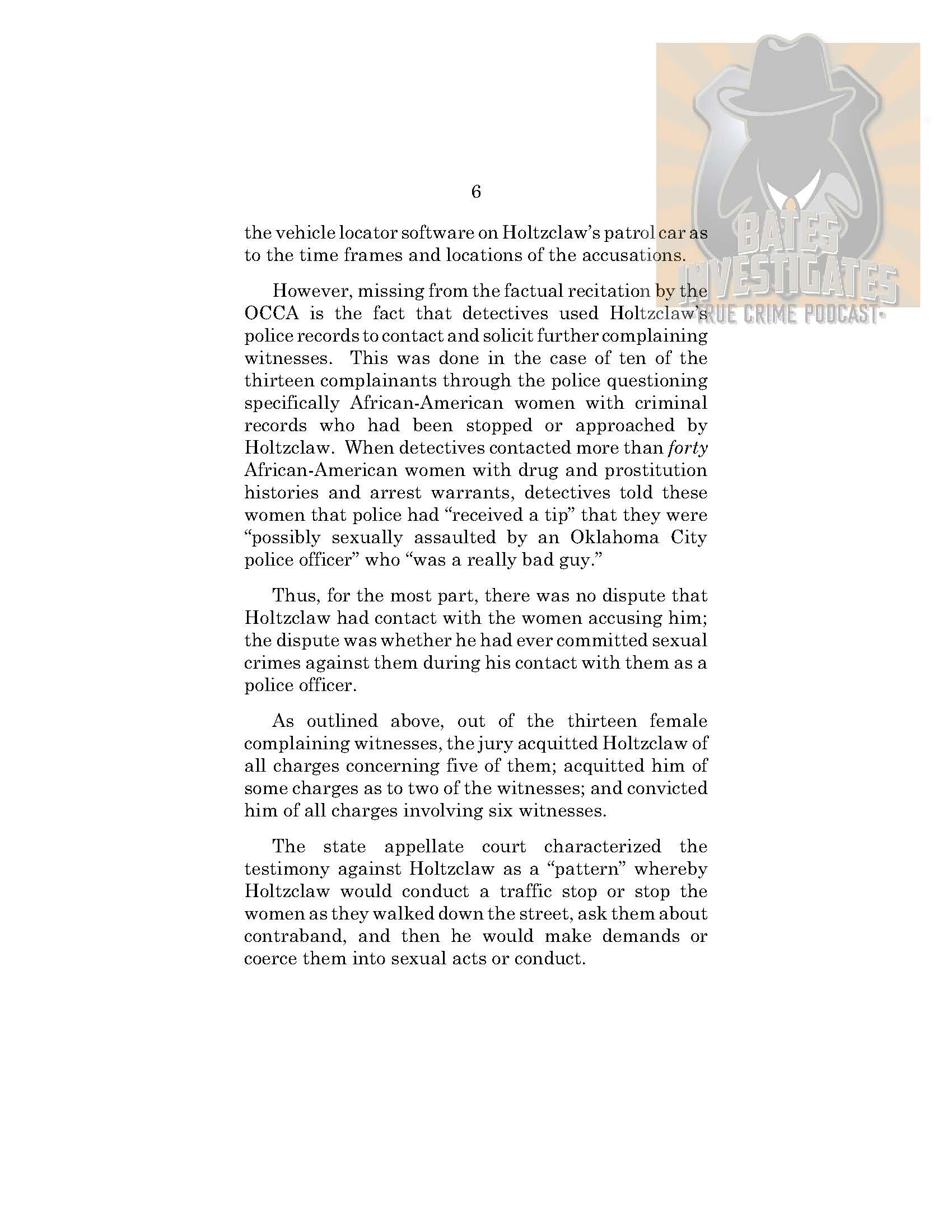
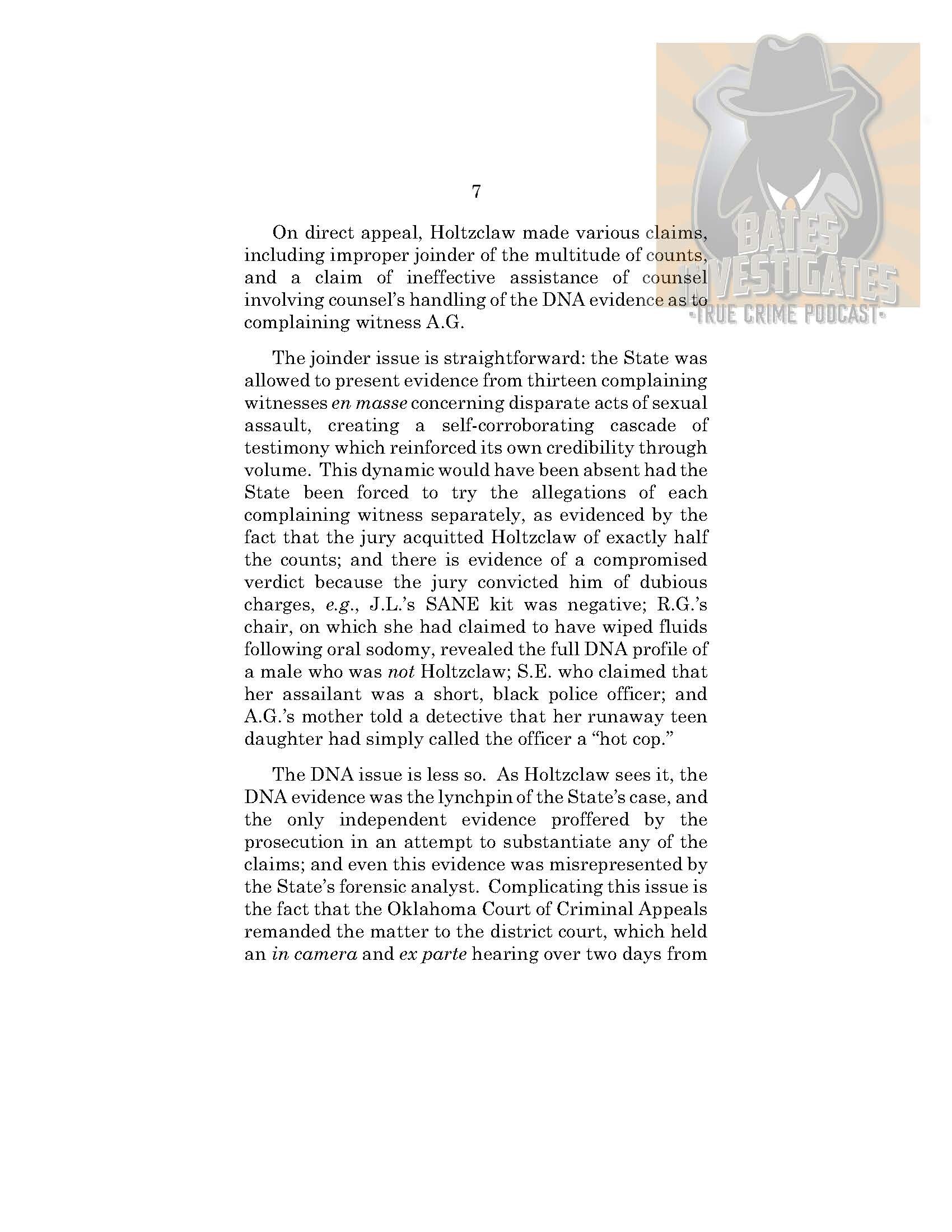
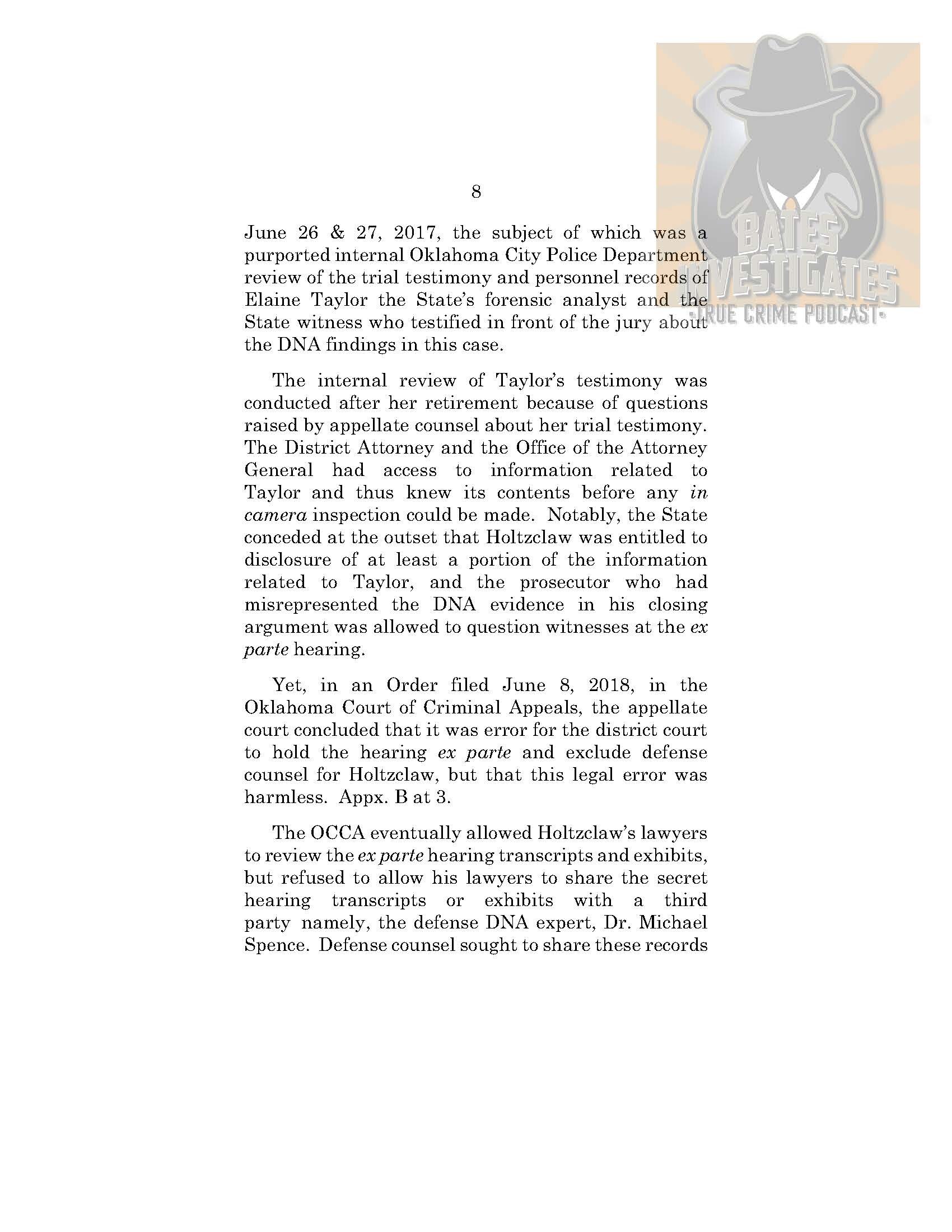
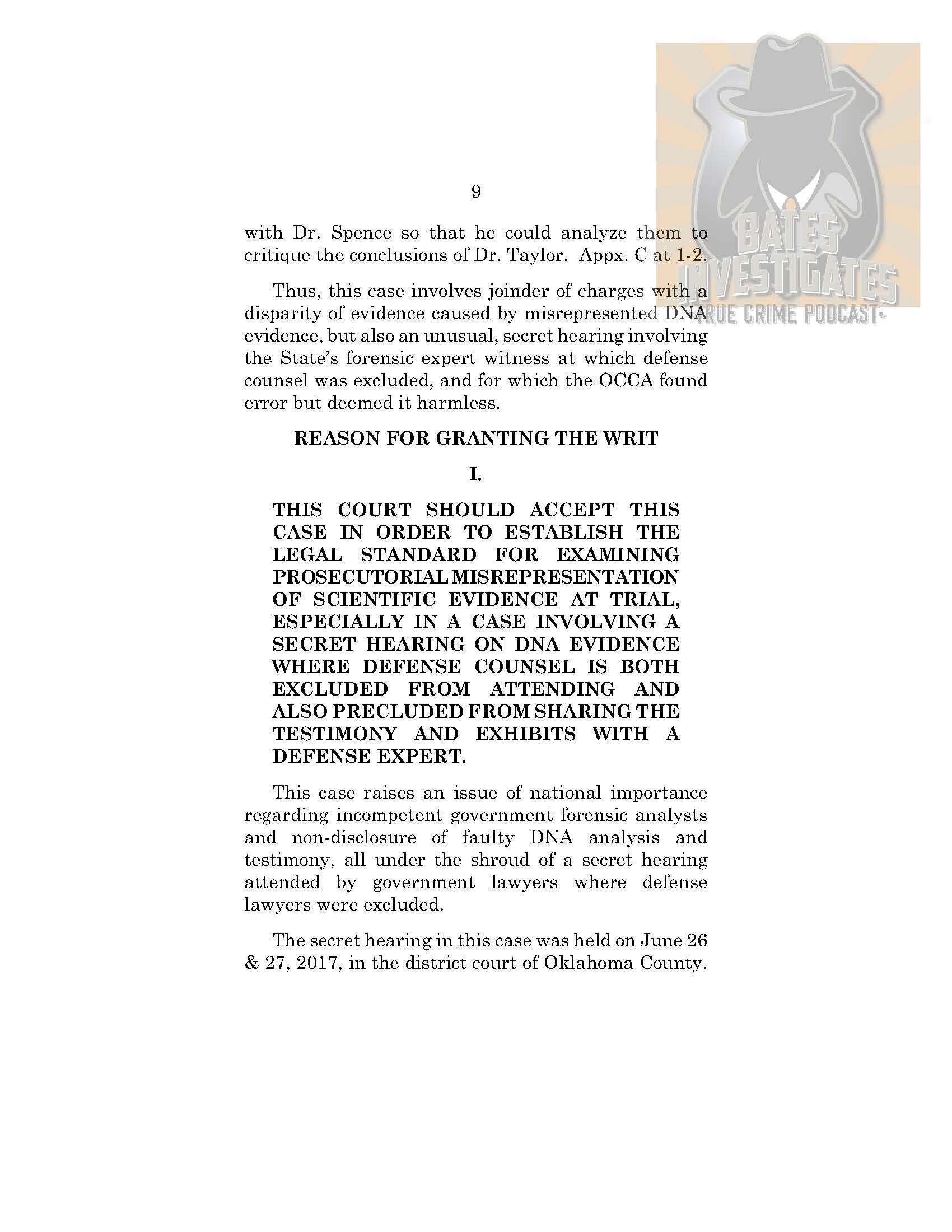
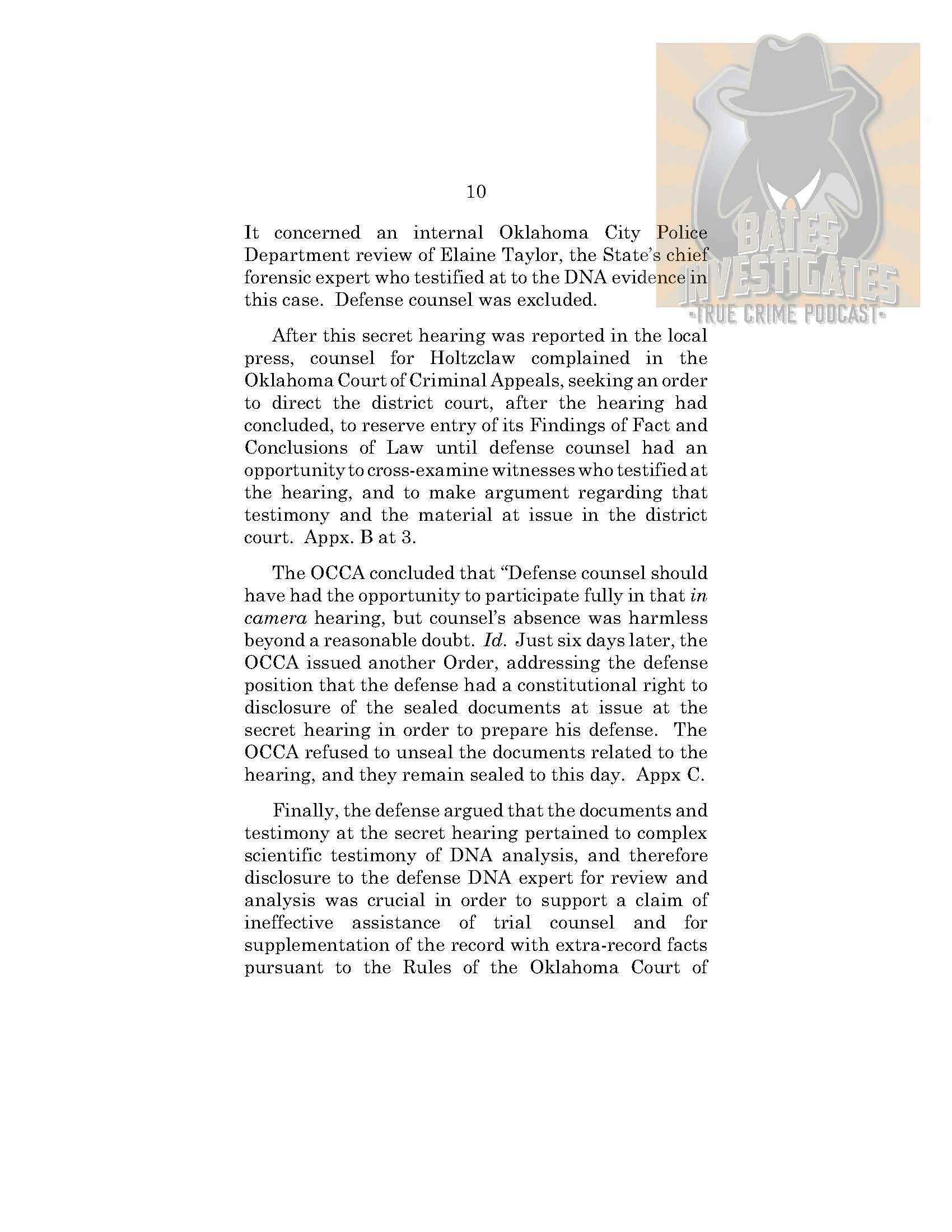
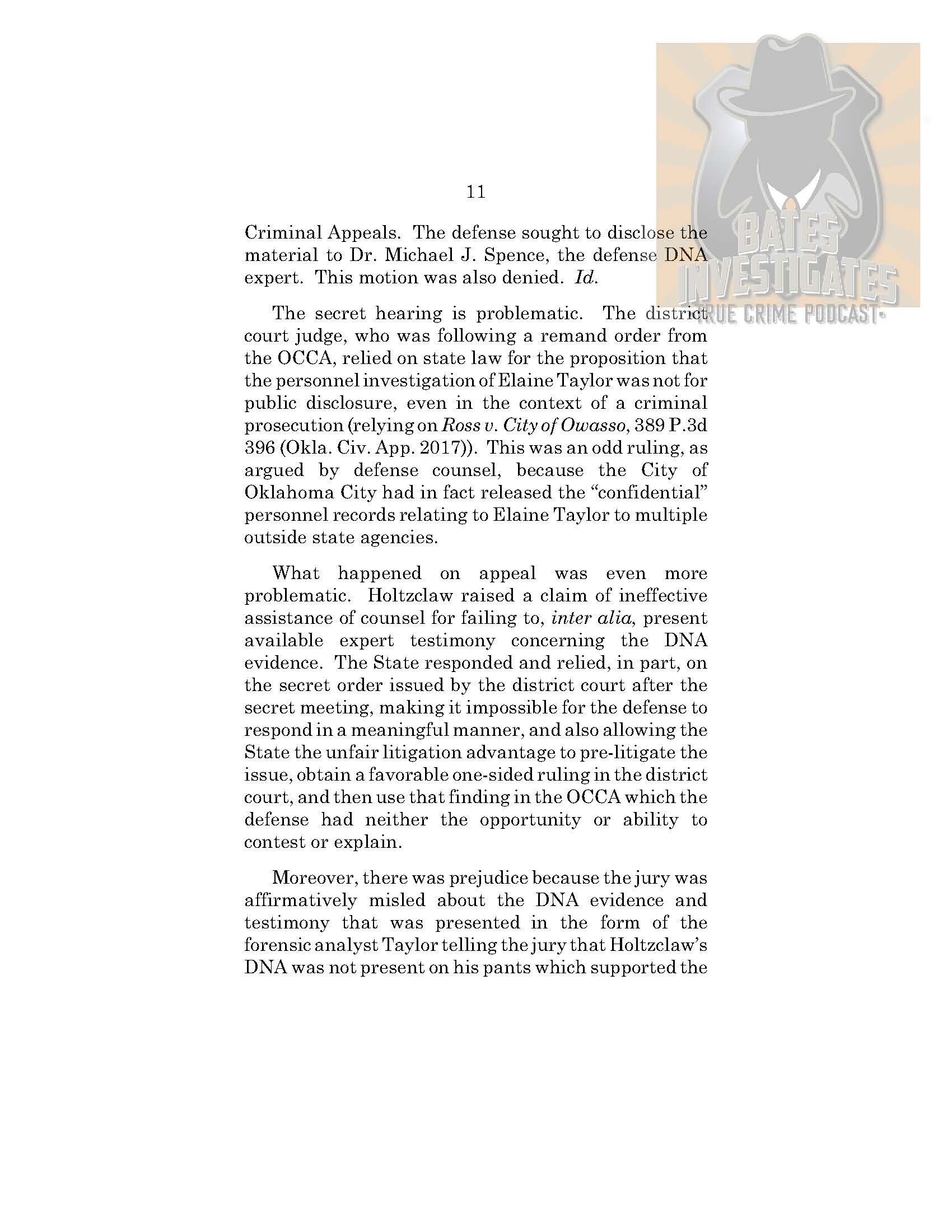
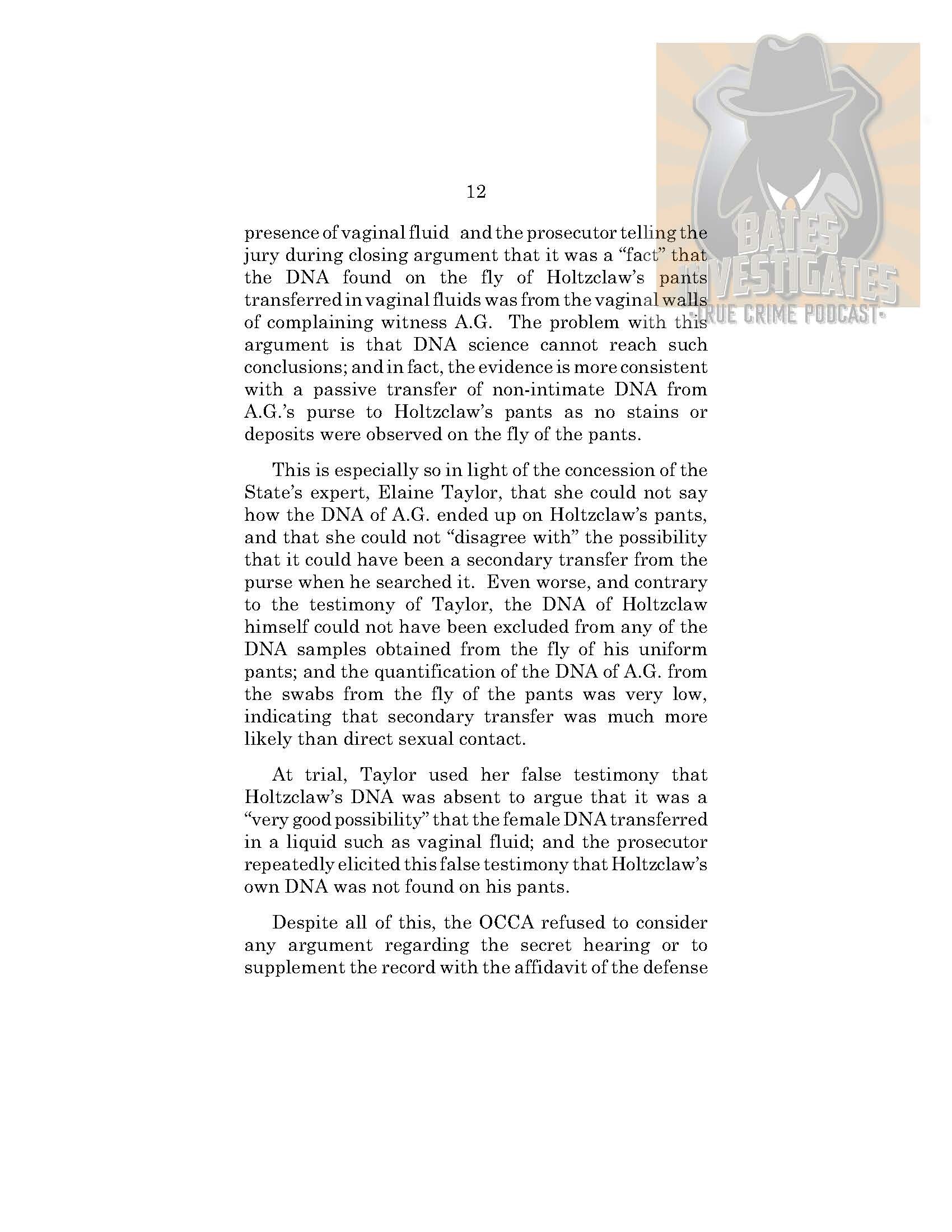
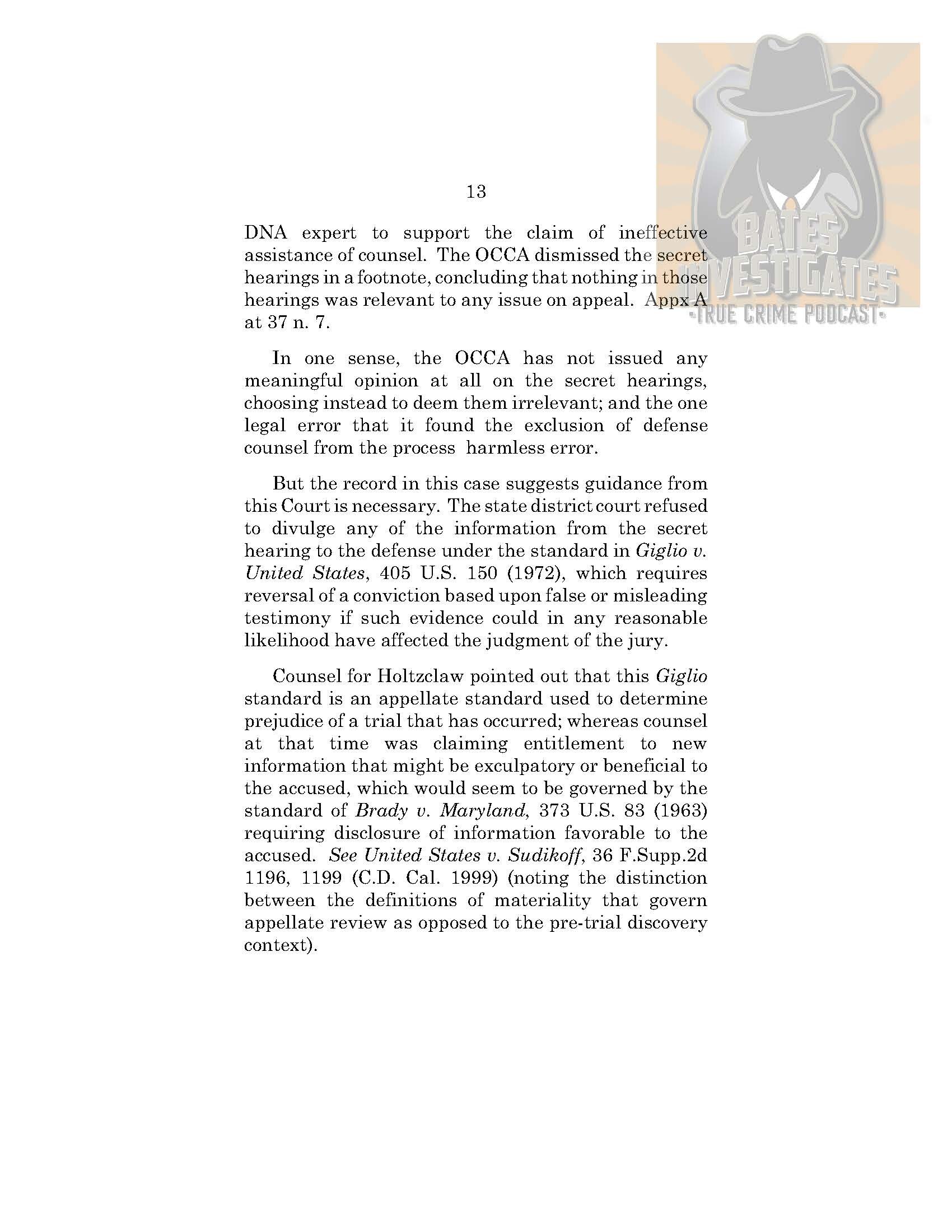
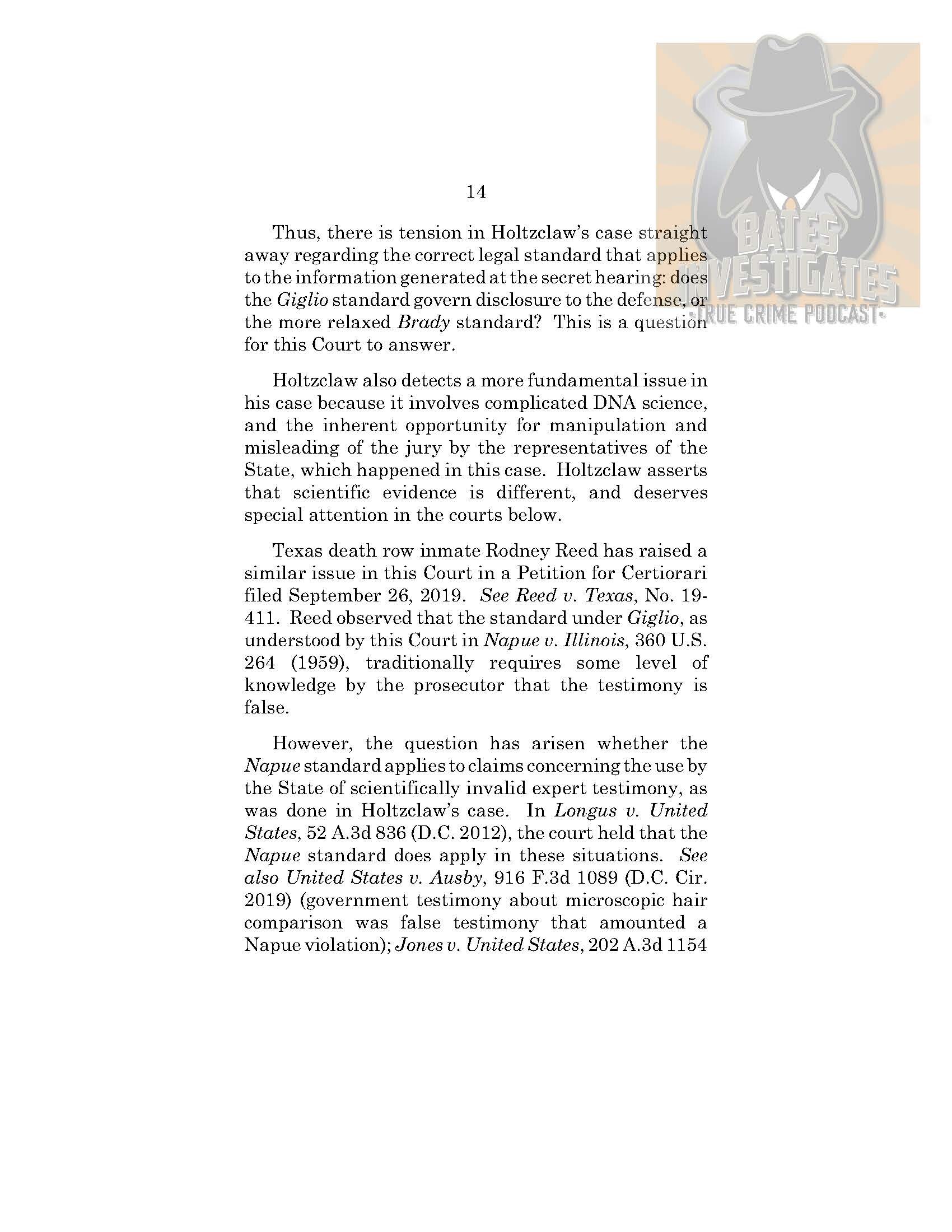
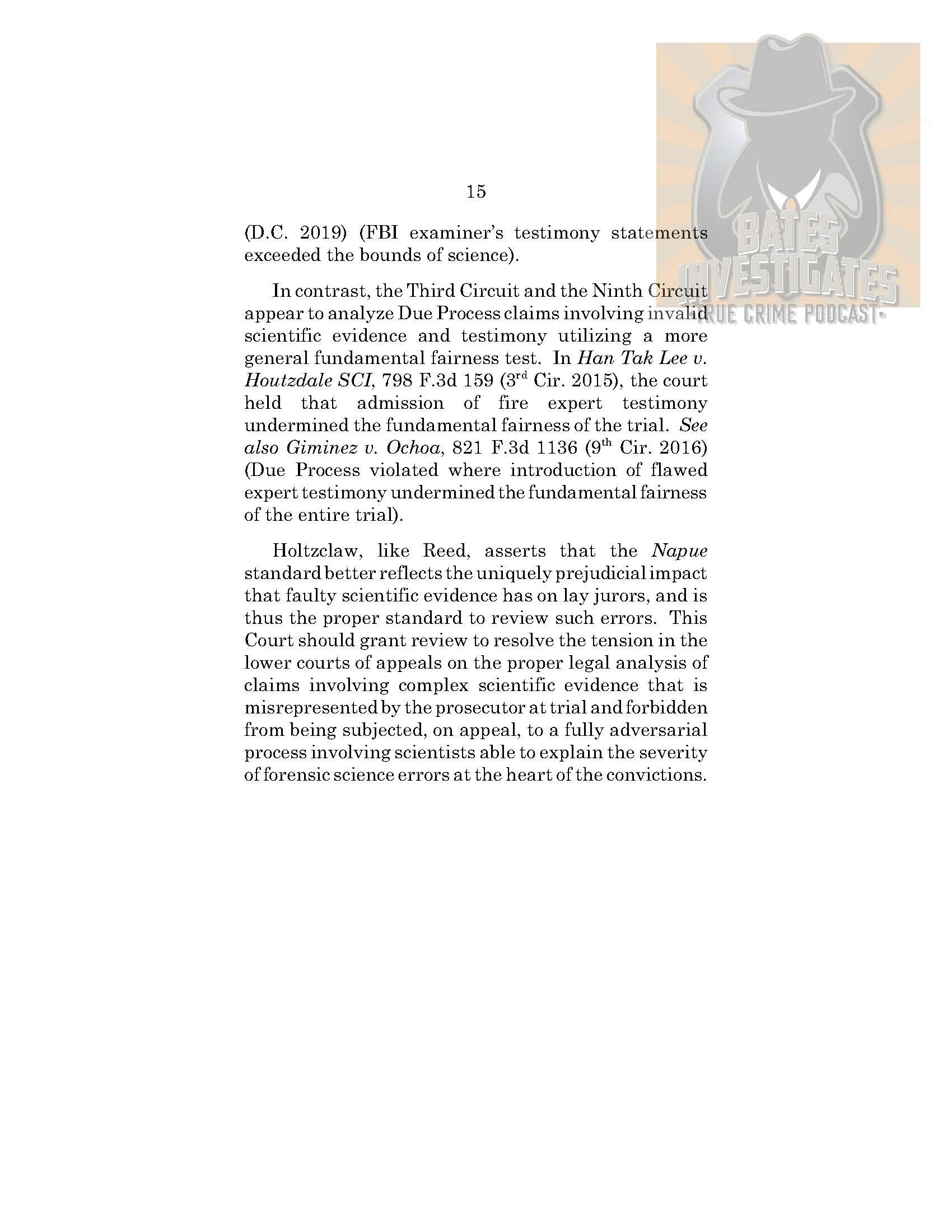
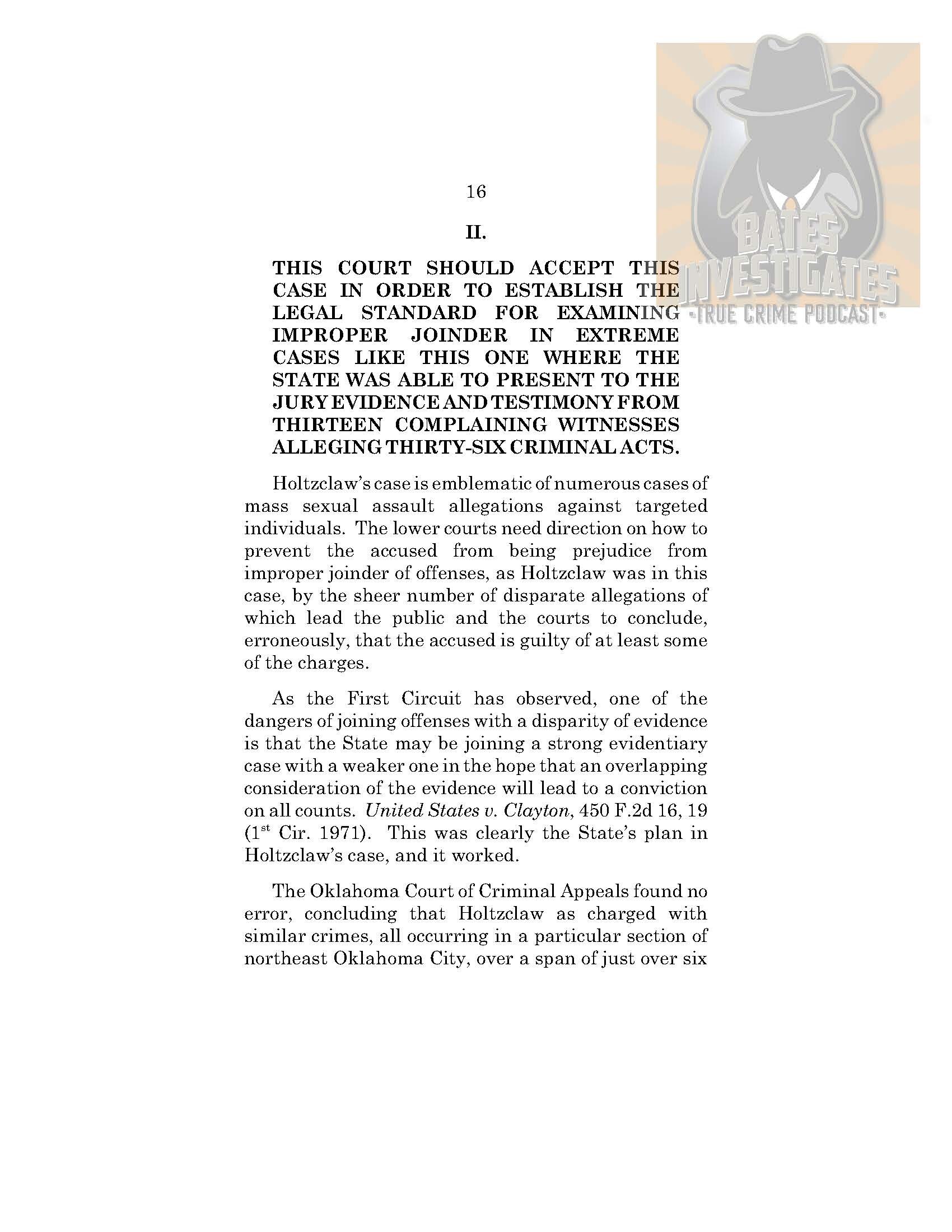
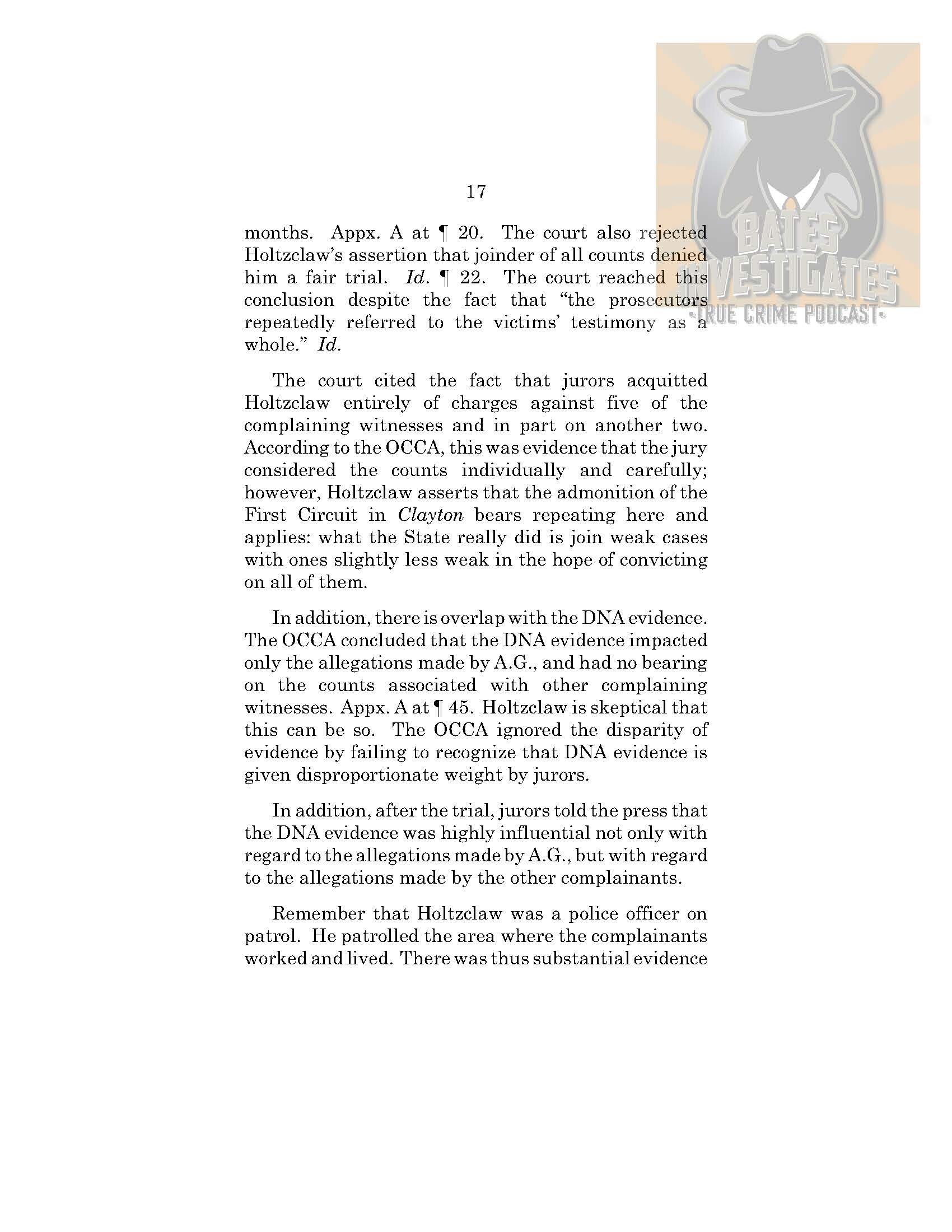
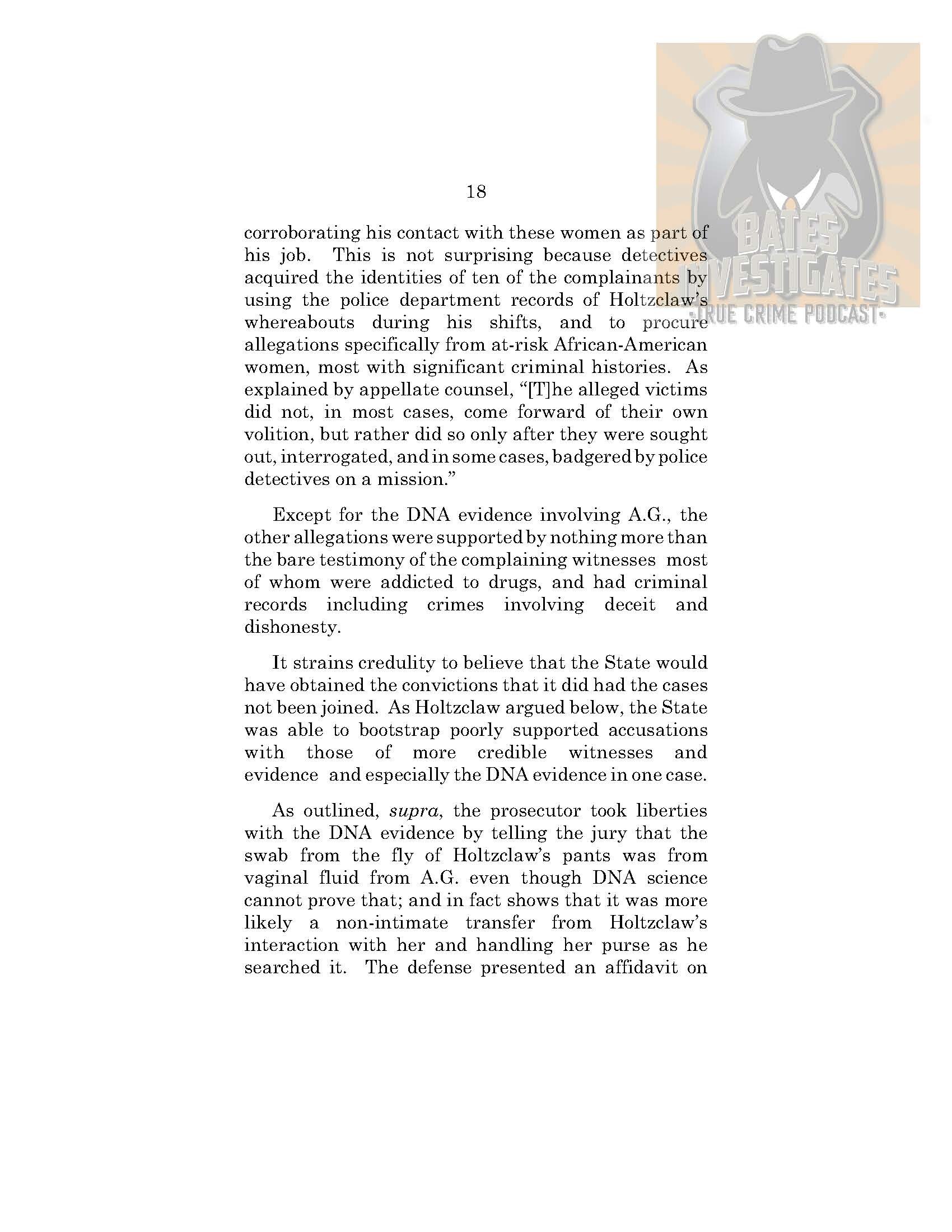
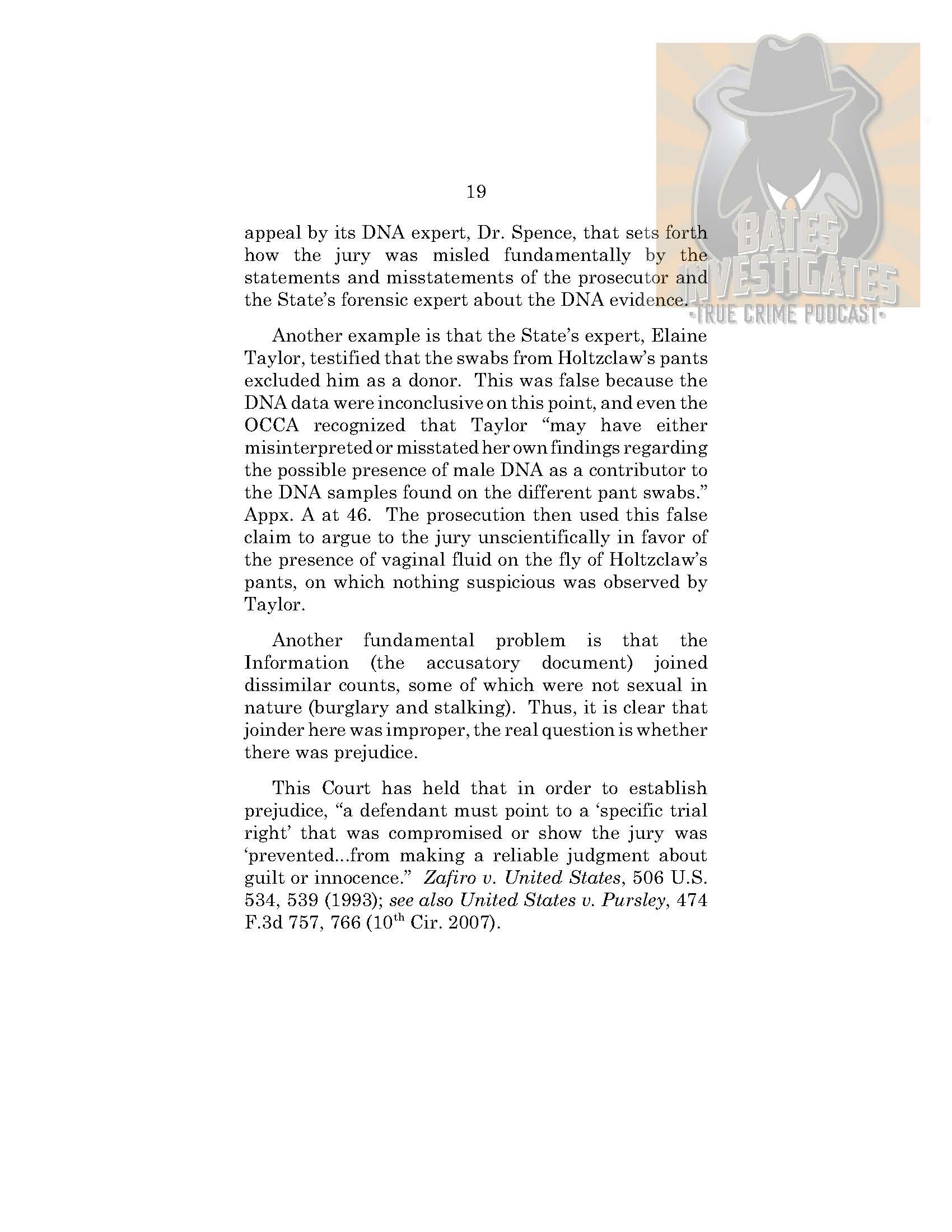
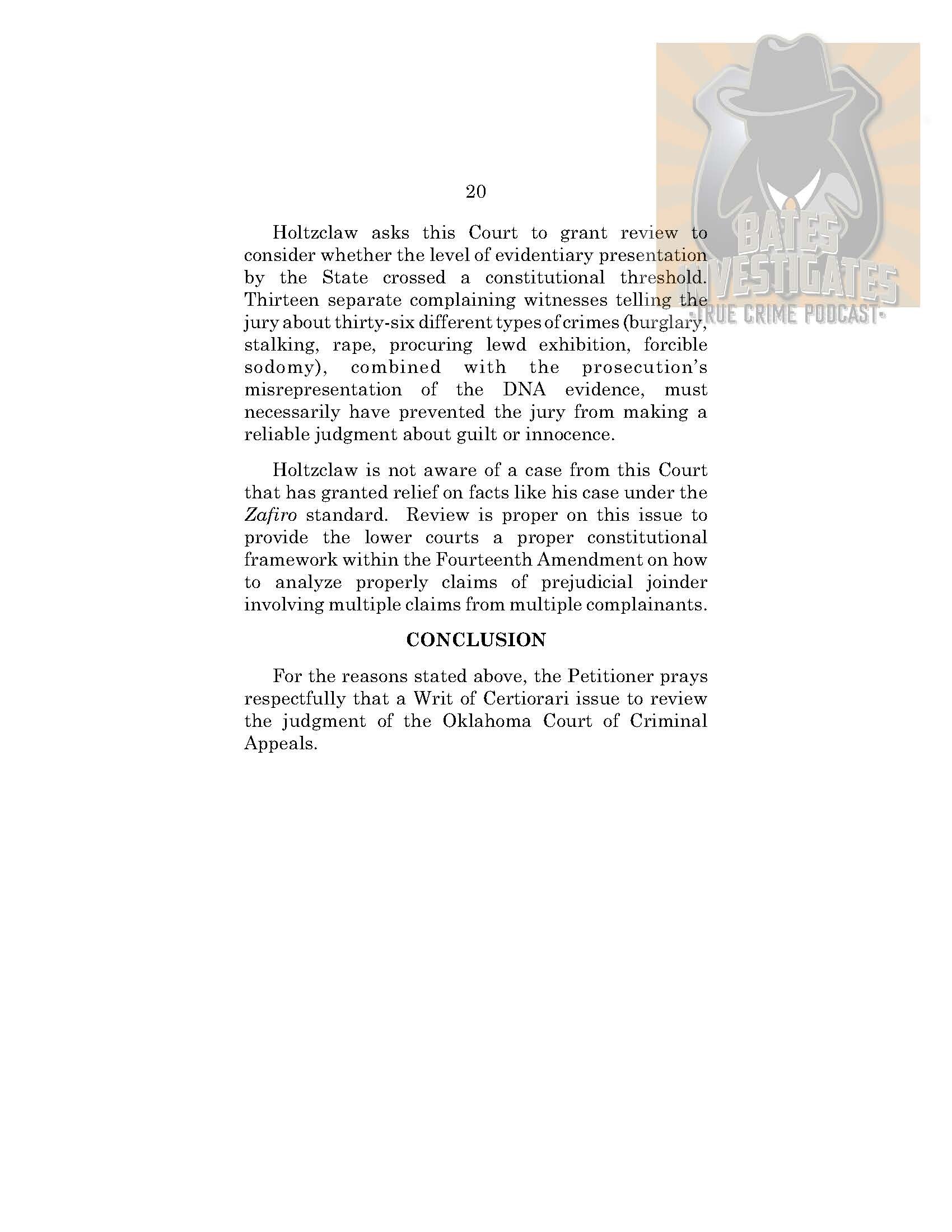
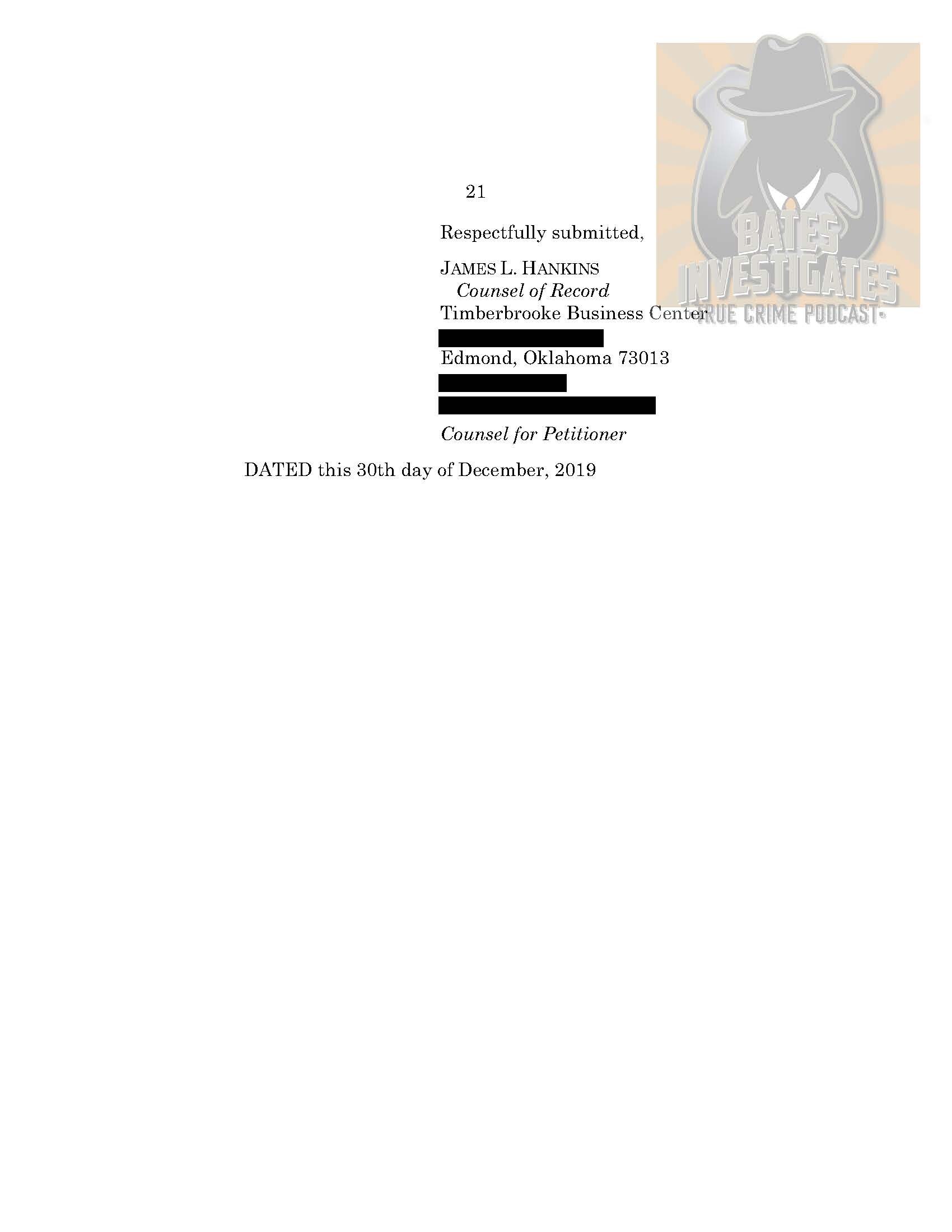
Additional Resources:
1/7/2020 (KFOR News Ch4) Daniel Holtzclaw Files Appeal with SCOTUS
1/7/2020 (KOCO News Ch5) Former OKC Officer Convicted of Rape, Other Sex Crimes Files Appeal with U.S. Supreme Court.
1/7/2020 (KWTV News9) Former OKC Police Officer Daniel Holtzclaw Files Appeal with SCOTUS.
1/8/2020 (The New York Times) Former Oklahoma Cop Appeals Convictions to US Supreme Court.
1/10/2020 (Daily Wire) Former Cop Who Appears to have been Wrongly Convicted of Rape Files Appeal with Supreme Court.
